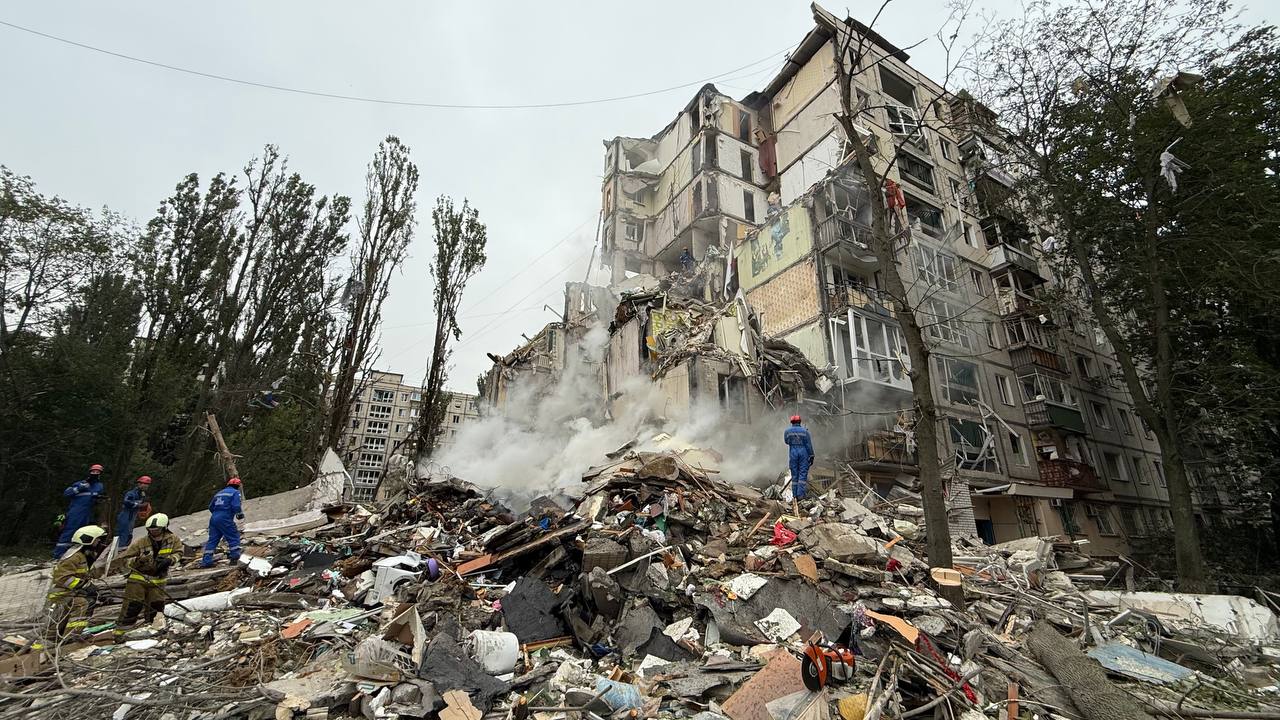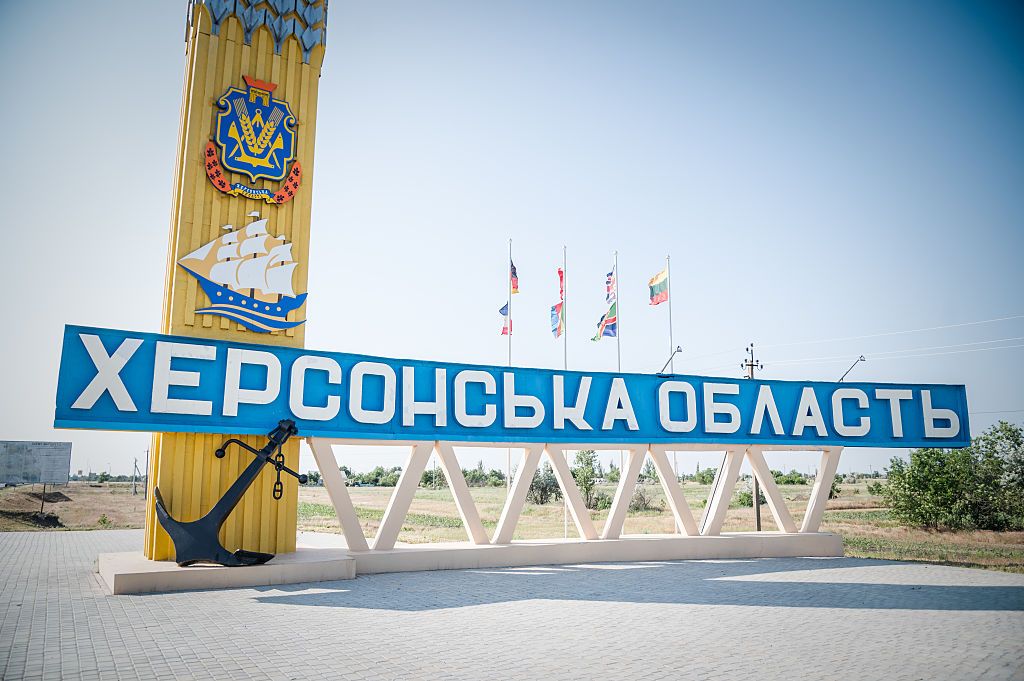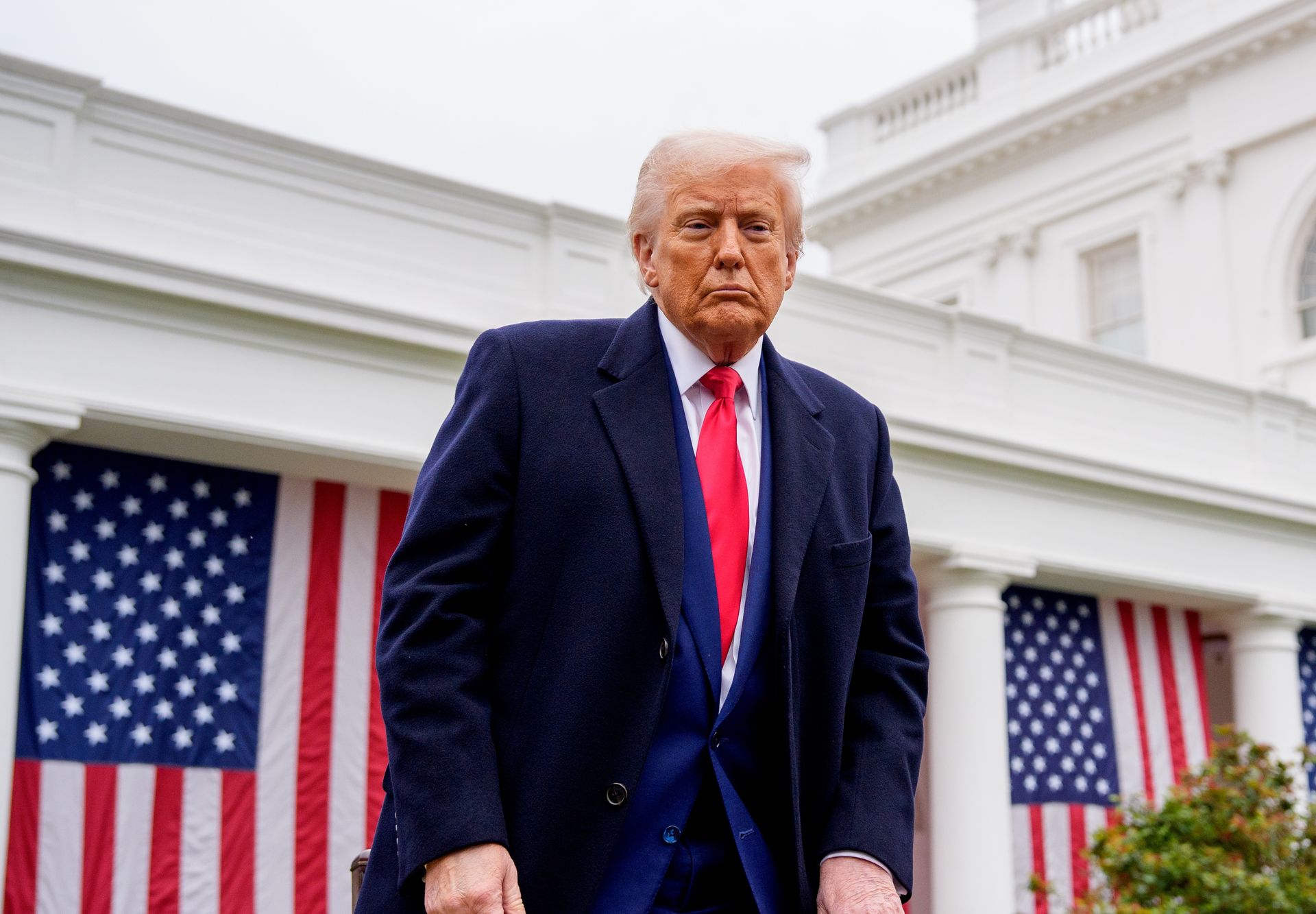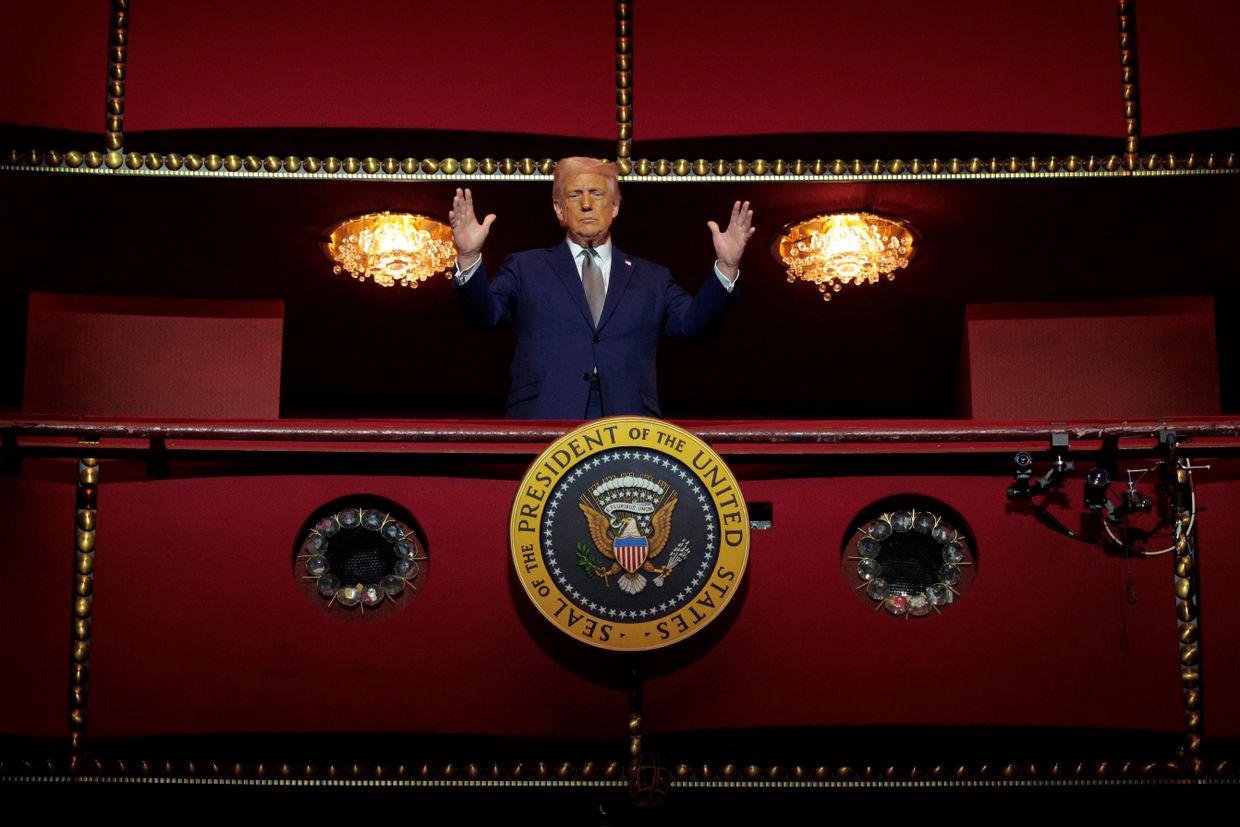Ukraine war latest: Ukrainian drones target Shahed storage site, industrial facilities in Russia; Strikes hit oil depot in Sochi

Key developments on Aug. 2-3:
- Ukrainian drones target Shahed storage site, industrial facilities in Russia, military claims
- Ukraine's drone strike reportedly sparks fire at oil depot in Russia’s Sochi
- Ukraine aims to secure all EU aid planned for 2025, economy minister says
- India to keep buying Russian oil despite Trump threats, NYT reports
- US nuclear submarines 'closer to Russia', Trump says
A series of drone attacks targeted industrial facilities in Russia's Ryazan, Penza, Samara and Voronezh oblasts overnight on Aug. 2, Ukraine's General Staff reported.
In Ryazan, an oil refinery was reportedly struck, with videos shared on social media showing a large pillar of fire near the site.
Ryazan Governor Pavel Malkov said debris from a drone fell on the territory of an unspecified enterprise and that emergency crews were addressing the damage.
In Penza, the Elektropribor plant was allegedly targeted. Russian Telegram channels reported five explosions over the city. Regional officials have not publicly commented on the incident.
In Samara Oblast, the Novokuibyshevsky oil refinery, located about 20 kilometers (12 miles) from the city of Samara, was reportedly on fire following a drone strike. Videos posted on local Telegram channels appeared to show flames rising from the refinery.
Samara Governor Vyacheslav Fedorishchev confirmed a drone strike in the region but did not name the specific facility. He said mobile internet access has been temporarily restricted and that the Samara airport was closed following the incident.
Ukrainian drones also targeted the Annanefteprodukt fuel and lubricants storage base near the village of Anna in Voronezh Oblast, the General Staff said.
Additionally, Ukrainian drones operated by the Security Service of Ukraine (SBU) targeted the Primorsko-Akhtarsk military airfield in Russia's Krasnodar Krai, striking storage and launch facilities for Shahed kamikaze drones, the SBU claimed. Following the attack, a fire reportedly broke out near the airfield.
The Kyiv Independent could not independently verify these reports.
Both Elektropribor and the Novokuibyshevsky refinery are subject to international sanctions. The refinery is owned by Rosneft, a Russian state-controlled energy company sanctioned by the United States in 2014 following Russia's illegal annexation of Crimea.
The Ukrainian military called the attack a "response" to Russia's recent strikes on civilian infrastructure in the country.
The strike across Russia come just a day after Moscow launched a barrage of drones and missiles on Kyiv on July 31, killing at least 31 people and injuring 179 in one of the deadliest attacks on Ukraine's capital since the start of the full-scale invasion.
Ukraine's drone strike reportedly sparks fire at oil depot in Russia’s Sochi
A drone attack caused a major fire at an oil depot in Russia’s resort city of Sochi early on Aug. 3, according to local authorities.
More than 120 firefighters were deployed to battle the blaze, which engulfed a fuel tank in the Adler district, regional Governor Veniamin Kondratyev said on his Telegram channel.
The Kyiv Independent could not immediately verify the reports, and Ukrainian officials have not yet commented.
A 2,000-cubic-meter (approximately 70,000-cubic-foot) fuel tank was on fire, Russia’s state-owned RIA Novosti reported, citing emergency officials in the Krasnodar region, where Sochi is located. Russia’s civil aviation agency, Rosaviatsia, said flights at Sochi Airport were suspended "to ensure air safety."
Russian Telegram channel Crimean Wind reported that Sochi Airport imposed fuel restrictions due to the attack on the oil reservoir, forcing some flights departing from Sochi Airport to make additional landings at alternate airfields to refuel.
The drone strike is a part of Ukraine's continued campaign to target Russian energy infrastructure seen as critical to Moscow’s war effort. Sochi, which hosted the 2014 Winter Olympics, has rarely been targeted during the war, though a previous Ukrainian drone attack in the Adler district late last month reportedly killed a woman, according to Russian authorities.
The broader Krasnodar region is home to key refineries, including the Ilsky plant, one of the largest in southern Russia and a repeated target of Ukrainian drone strikes.
Meanwhile, the governor of Russia’s Voronezh region claimed that another Ukrainian drone strike injured a woman and caused multiple fires on Aug. 4. At the same time, Ukraine’s military administration reported that Russia carried out another missile strike on Kyiv.
Ukraine aims to secure all EU aid planned for 2025, economy minister says
Kyiv intends to implement the reforms necessary to secure the full tranche of aid for 2025 under the European Union's Ukraine Facility, Economy Minister Oleksii Sobolev told reporters on Aug. 2.
Sobolev's remarks come after the EU announced on July 25 that the next disbursement of financial assistance would be smaller than planned due to Ukraine's failure to complete key reforms by the established deadlines.
Ukraine aims to get back on track to complete the reforms in order to secure the full 12.5 billion euros ($14.5 billion) under the Ukraine Facility for 2025, Sobolev said at a press conference.
"We plan to fulfill everything," he said, according to Bloomberg.
Kyiv has also submitted an updated version of the Ukraine Plan for the European Commission's consideration.
"The Ukraine Plan was developed in 2023, and during its development, the European Commission provided for the possibility of changing the terms of the Plan in the event of objective circumstances," the Economy Ministry said in a statement.
"Two years after the start of work on the Plan, there was a need to update the obligations under the Ukraine Facility program."
The Ukraine Facility was approved in February 2024 as a four-year program providing 33 billion euros ($36 billion) in loans and 17 billion euros ($18 billion) in grants to stabilize Ukraine’s economy and support post-war recovery.
The Ukraine Plan serves as the reform roadmap tied to the country's EU accession process, covering governance, rule of law, reconstruction, and economic modernization.
The proposed amendements to the Ukraine Plan push back some requirements while accelerating others. The new version calls to move up the adoption of legislation on the sale of public banks from the first quarter of 2026 to the fourth quarter of 2025. It also suggests passing legislation on renewable energy investments by late 2025 instead of 2026.
European Commission Spokesperson Guillaume Mercier said that EU regulations allow for revisions to the Ukraine Plan in light of evolving circumstances.
"Given the ongoing conflict, it is clear that certain amendments to the Plan are being considered due to objective circumstances," Mercier told the Ukrainian news outlet Ukrinform.
Ukraine may request revisions to the Plan, and "the European Commission will assess this request and, based on its assessment, may propose to the EU Council amendments to the Plan," he said.
Kyiv had aimed to receive 4.5 billion euros ($5.2 billion) in the fourth installment of the EU's Ukraine Facility, the largest so far, but will instead receive 3.05 billion euros ($3.5 billion). The reduction follows Ukraine's request on June 6 for a partial payout, as Kyiv claimed to have completed 13 of the 16 required reforms.
The funding cuts were announced amid renewed scrutiny on Ukraine's reforms and anti-corruption efforts as President Volodymyr Zelensky signed a law dismantling the independence of the nation's top anti-graft agencies. Following swift domestic and international backlash, the law was reversed a week later.
The controversy put Ukraine's path to EU accession at risk, with European Commission President Ursula von der Leyen and other European leaders holding behind-the-scenes calls with Zelensky to stress the importance of the anti-corruption infrastructure.

India to keep buying Russian oil despite Trump threats, NYT reports
India plans to keep buying cheap oil from Russia despite threats from U.S. President Donald Trump, officials in India told the New York Times (NYT) in a story published Aug. 2.
Trump on July 30 announced a 25% tariff on India along with an unspecified penalty for continuing to purchase Russian oil products. Trump has also threatened to impose 100% secondary tariffs on Russian oil by Aug. 8 if Moscow does not make a deal to end the war in Ukraine.
Two senior Indian officials told the NYT that the White House announcement triggered no change in energy or trade policy. The government has "not given any direction to oil companies" to reduce Russian imports, one official said.
Randhir Jaiswal, India's foreign ministry spokesperson, said at a news conference on Aug. 1 that India's and Russia's relationship remained "steady."
"Our bilateral relationships with various countries stand on their own merit and should not be seen from the prism of a third country," Jaiswal said. "India and Russia have a steady and time-tested partnership."
India is the second-largest buyer of Russian oil, after China. Long dependent on Middle Eastern oil, India sharply increased imports from Russia after Moscow launched its 2022 full-scale invasion of Ukraine, taking advantage of deep discounts and falling European demand.
Following Trump's warnings of steep secondary tariffs, Reuters reported on July 30 that Indian state-owned refineries suspended Russian oil purchases for at least a week. Bloomberg then reported on Aug. 1 that several oil tankers carrying Russian crude were idling off India's western coast as the nation's refiners sought alternatives.
Trump commented on the reports in remarks to the media on Aug. 1.
"I understand that India is no longer going to be buying oil from Russia," he said. "That's what I heard. I don't know if that's right or not. That is a good step. We will see what happens."
The Indian officials' comments to the NYT indicate that reports of large-scale trade policy change may have been premature. Analysts at Kpler, which tracks shipping data, told the NYT that the decline in Russian crude imports to India in July coincides with a period where India typically buys less oil due to monsoon season and scheduled refinery maintenance.
US nuclear submarines 'closer to Russia', Trump says
U.S. nuclear submarines have been repositioned "closer to Russia," U.S. President Donald Trump said in an interview with Newsmax on Aug. 2 after a tense exchange with former Russian President Dmitry Medvedev.
The move comes amid escalating rhetoric between the two nuclear powers, triggered by Trump’s ultimatum to Russia to halt its full-scale invasion of Ukraine by Aug. 8 or face new "severe" tariffs.
Medvedev responded on July 28 by warning that Trump's pressure campaign is a step towards war "not between Russia and Ukraine, but with his own country."
Trump said on Aug. 1 he had ordered two nuclear submarines to be deployed to "appropriate regions."
"We always want to be ready, and so I have sent to the region two nuclear submarines," Trump told Newsmax. "I just want to make sure that his (Medvedev's) words are only words and nothing more than that."
Known for his aggressive rhetoric, Medvedev has repeatedly threatened nuclear escalation and echoed Kremlin propaganda portraying Russia as a victim of Western aggression.
"To my friends in Russia: President Trump seeks peace, not conflict. However, please understand that he is not (Barack) Obama, he is not (Joe) Biden, and he will not be trifled with. You are overplaying your hand," U.S. Senator Lindsey Graham wrote on X on Aug. 1.
Trump earlier accused Medvedev of "entering very dangerous territory," calling him a "failed former president" and warning him to "watch his words."
The U.S. president has threatened to impose 100% secondary tariffs on Russian oil unless Russian President Vladimir Putin agrees to a peace deal by Aug. 8.
The tariffs mentioned by Trump are expected to be secondary sanctions on countries that buy Russian oil, gas and other products, such as China and India.
On July 31, senior U.S. diplomat John Kelley told the United Nations Security Council that the United States is prepared to implement "additional measures to secure peace."
Earlier this week, U.S. Ambassador to NATO Matthew Whitaker also said in an interview with Newsmax that Trump still holds leverage to push for a diplomatic resolution to the war against Ukraine and has the ability to halt Russia’s capacity to finance the war effort.
















